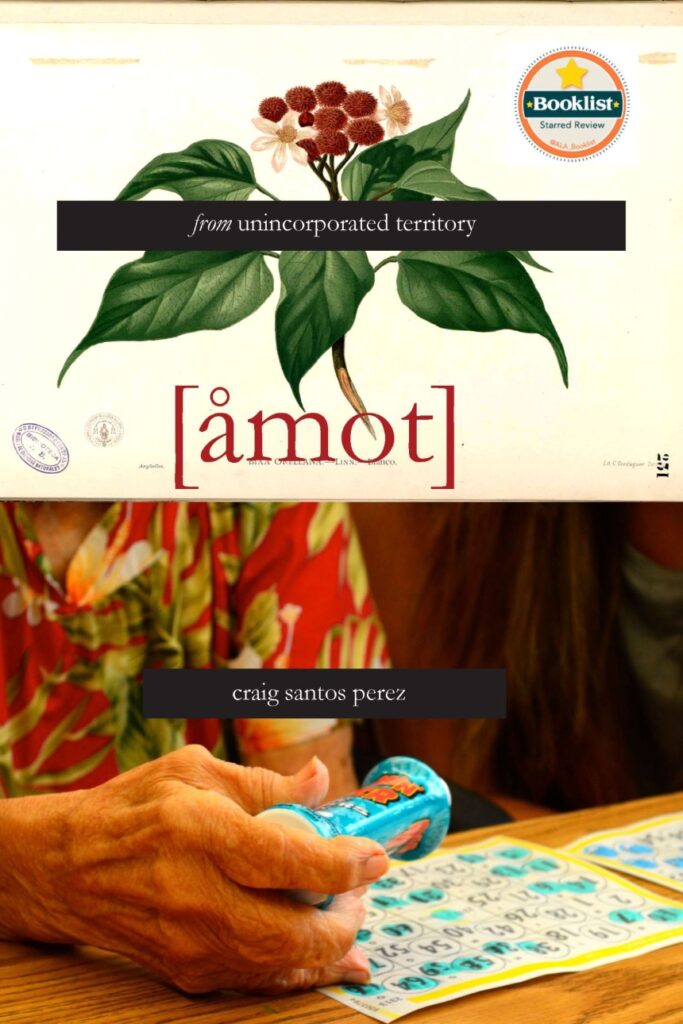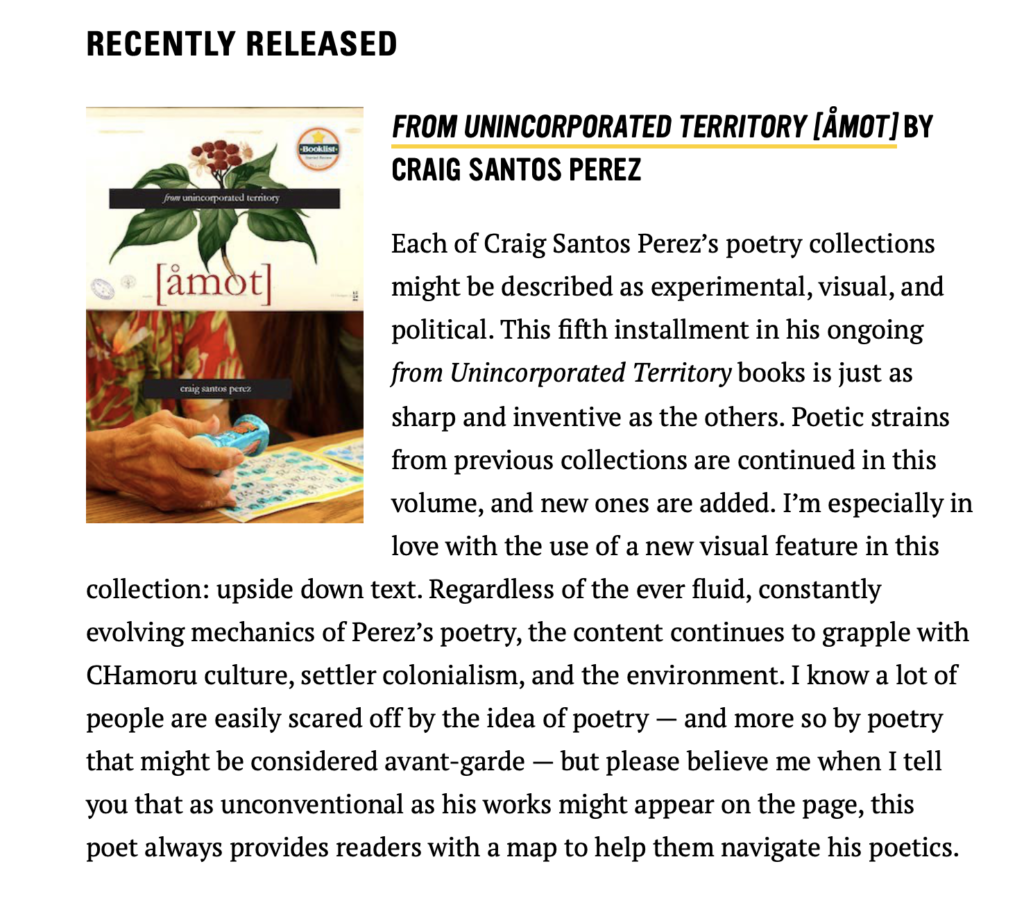
Purchase book from Omnidawn Publishing here

REVIEWS:
BOOK DESCRIPTION:
Experimental and visual poems diving into the history and culture of the poet’s homeland, Guam.
This book is the fifth collection in Craig Santos Perez’s ongoing from unincorporated territory series about the history of his homeland, the western Pacific island of Guåhan (Guam), and the culture of his indigenous Chamoru people. “Åmot” is the Chamoru word for “medicine,” commonly referring to medicinal plants. Traditional Chamoru healers were known as yo’åmte; they gathered åmot in the jungle and recited chants and invocations of taotao’mona, or ancestral spirits, in the healing process.
Through experimental and visual poetry, Perez explores how storytelling can become a symbolic form of åmot, offering healing from the traumas of colonialism, militarism, migration, environmental injustice, and the death of elders.
BLURBS
Craig Santos Perez continues to expand visual literacies of Pacific Literature as he grapples with the question: what does it mean to write the ocean? Here are handwoven, blessed nets of intergenerational Chamoru stories. If a poem could unstitch a barbed wire fence, throw net, play bingo, unshipwreck Indigenous youth, care for elders, or heal a broken heart with Spam, that poem is in these pages. Propelled by gratitude, this book is a call to defy and protect, a sea of poetic innovation and care.
—Noʻu Revilla, author of Ask the Brindled
In from unincorporated territory [åmot], Craig Santos Perez sings down healing for the speaker who asks, “isn’t that too / what it means to be / a diasporic chamorus // to feel foreign in your own homeland.” Each poem probes this question against the continued disenfranchisement and militarization of Guåhan and the CHomoru people. From elegies for loved ones, continual rewriting of prayer, and eating rice with the grandmother, the rituals in this collection bear the histories of family, of the church’s spiritual abuse, and of the colonization of the island. But for endurance and renewal there is hope; each poem-story is itself a plant that yields a seed the speaker gathers. Each seed bursts its casing to branch into a meeting place for inter-generational memory and wisdom. What was deemed unworthy, flowers wildly, coded in the name of the plants reclaiming their CHamoru names banking these pages. In this collection Craig Santos Perez’s vital poems prove yet again that his necessary and clear voice is one that shakes the foundations of nation and demands of the reader to consider their complicity in the machinations of Empire.
-Rajiv Mohabir, author of Cutlish
[åmot], the fifth stunning collection of Craig Santos Perez series from unincorporated territory combines Guåhan’s natural and cultural histories, as well as CHamoru visual and oral literacies, to create a poetic form of healing that Édouard Glissant might have hailed an aesthetic of the Earth. Like the banyan tree that expands and strengthens through aerial roots, the poetry of [åmot] isa “medicinal plant” that seeds from the diasporic roots of Guåhan, from its histories fragmented by imperialisms, from CHamoru ancestors and elders, from the egg of an exiled Micronesian Kingfisher, to radiate back to their center: Guåhan. With this fifth opus, Perez accomplishes a tour de force by literally fusing Guåhan’s natural and cultural forms with the poetic fabric, and by mapping a CHamoru ecology of healing, between home and displacement. A literary achievement carried out through lyricism, communality, humor, gratitude, and responsibility.
Beatrice Szymkowiak, author of Red Zone